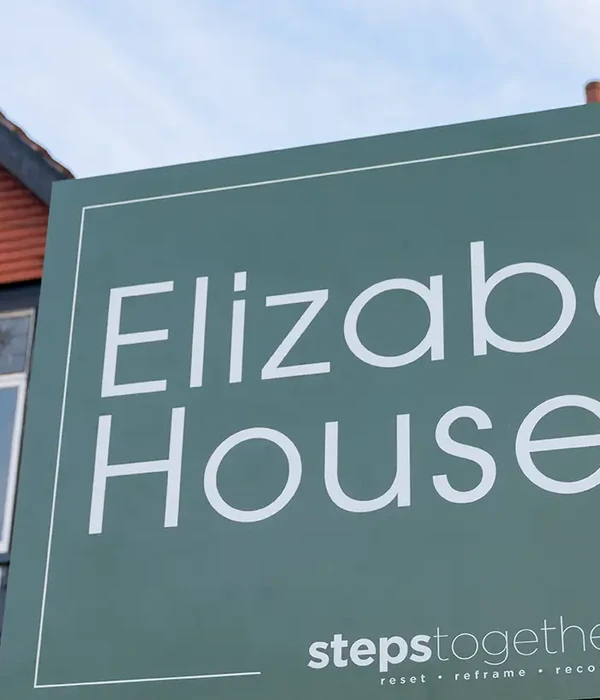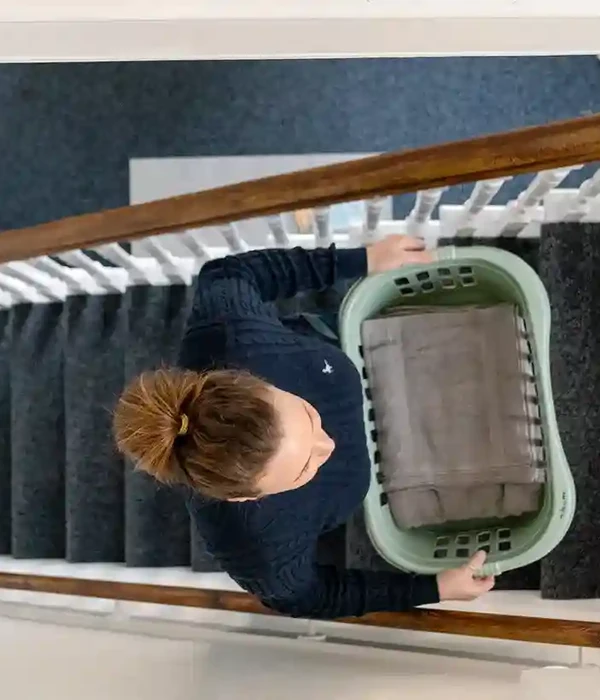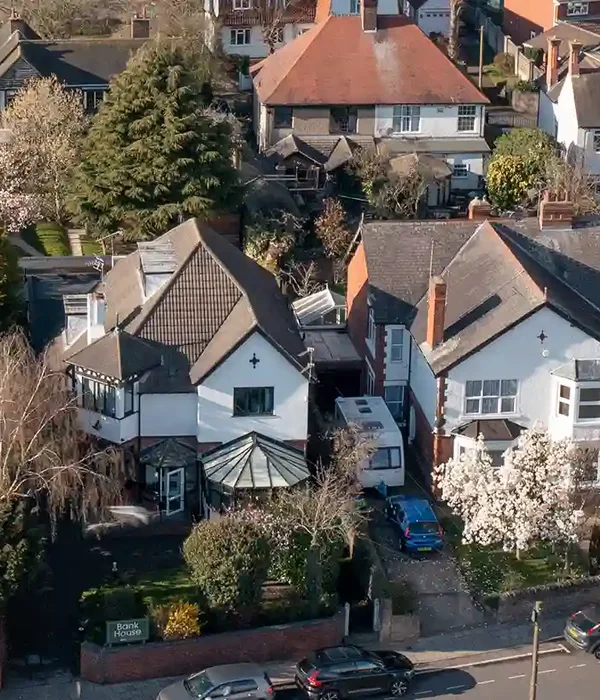LSD Addiction Treatment
LSD abuse can affect your mind and daily life in ways you may not expect. Many people believe you can simply stop using hallucinogens without help, but the truth is that support and proper treatment are often needed for real recovery. LSD addiction treatment focuses on helping you understand why you use the drug and teaching you coping strategies to live without it.
Comprehensive hallucinogen addiction treatment usually involves a mix of therapy, practical skills, and ongoing care, helping you manage emotional and psychological triggers that may lead to use. For some, inpatient rehab may be the most effective way to build a healthy routine while staying away from temptations.

Take the First Step Towards Recovery
Steps Together offers personalised support and proven treatments, providing the care, guidance and encouragement you need to move forward with confidence and build a healthier future.

Understanding LSD Addiction
LSD, also known as acid or lysergic acid diethylamide, is a powerful hallucinogenic drug. It changes how you see, hear, and feel the world around you. Under the influence of LSD, you might experience altered thoughts, vivid colours, or a sense of being disconnected from reality.
LSD mainly affects the brain’s serotonin system, which controls your mood, perception, and emotions. This can lead to unpredictable and often intense changes in your thoughts and feelings. Some people seek out LSD for the ‘trip,’ but these effects can also cause confusion or frightening experiences called bad trips.
What Is LSD Addiction?
LSD addiction involves both your mind and your behaviour. While it is not the same as becoming physically dependent on some drugs, the risks to mental health and daily life can still be serious. The use of hallucinogens like LSD is somewhat prevalent, though levels remain somewhat stable with no major peaks or valleys.
LSD is not as addictive as many other drugs and does not often cause compulsive, drug-seeking behaviour. LSD doesn’t cause physical addiction, so stopping use isn’t likely to come with withdrawal symptoms.


Psychological vs Physical Dependence
While your body does not crave LSD in the same way as it would opioids or alcohol, psychological dependence can be powerful. If you keep seeking the drug for its effects or to escape problems, this can be a sign of psychological addiction.
With LSD, psychological cravings develop as you try to experience its hallucinogenic or uplifting effects again. You may start to rely on it during stressful times or when facing emotional pain. This pattern of use can make you feel like you need LSD to feel okay or normal, even if there are no physical symptoms of addiction.
LSD Addiction Treatment Options
An LSD addiction treatment programme involves several important steps. These focus on removing the drug from your body, rebuilding your mental health, and teaching you ways to maintain sobriety long-term.
LSD Detox
LSD detox does not follow the same process as detox for drugs like alcohol or opioids, because LSD does not cause physical dependence or withdrawal symptoms in most people. However, you can still experience intense psychological cravings and anxiety during the first days after stopping LSD.
Medical supervision during detox is important for your safety. Clinicians can monitor your mental state, watch for any risky behaviours, and provide support if you become distressed. This is especially important if you have been using other substances along with LSD.
Inpatient and Outpatient LSD Rehab
An inpatient rehab programme means you live at a rehab centre for several weeks. This removes you from daily triggers and provides a structured routine. Inpatient LSD rehab often works best if you have a severe addiction or struggle with your mental health.
Outpatient LSD treatment allows you to live at home and attend therapy sessions several times a week. This works well if you have a stable living situation and good support from family or friends. Outpatient drug rehab for LSD offers more flexibility but requires you to manage your free time carefully.
Therapeutic Methods Used in LSD Recovery
Therapy is at the core of treatment for LSD addiction. Since LSD does not usually cause physical addiction, the focus is on breaking mental habits and changing your thinking patterns. The most common method is cognitive behavioural therapy (CBT).
You may also join individual therapy or group therapy sessions. In group settings, you can share your experiences and learn from others facing similar struggles. Motivational interviewing helps increase your confidence and motivation to overcome a dependence on LSD.
Dual Diagnosis
Many people who struggle with LSD may also have other mental health issues such as depression, anxiety, or PTSD. This is called dual diagnosis. Treating only the addiction is often not enough, because untreated mental health problems can trigger relapse.
A strong drug addiction treatment programme will provide care for both your addiction and any co-occurring mental health conditions. This might include talking therapy, reviews, or medication where appropriate. Dual diagnosis programmes often include education about mental health, medication management, and ongoing support groups.
Other drug addictions we treat at our rehab centre

Effects of LSD Addiction
Struggling with LSD addiction is linked to serious changes in mood, perception, and behaviour. Chronic use can lead to lasting impairments in mental health and disrupt many parts of daily life. Some people experience paranoia or disturbing thoughts. Mood swings are common and can make it hard to maintain healthy relationships. Troubled sleep and nightmares can become a regular problem, leaving you exhausted and irritable.
Because LSD alters how your brain processes thoughts and emotions, withdrawal can include psychological symptoms like deep sadness, lack of motivation, or strong cravings for the drug. If these effects build up, you may need professional help to manage your mental health.
Behavioural and Physical Effects
Being addicted to LSD often leads to losing interest in social or family activities. Neglecting responsibilities, skipping work or school, and ignoring personal hygiene are common warning signs. Repeated use can result in reckless behaviour or taking unnecessary risks.
Physical effects you might notice include dilated pupils, faster heart rate, high blood pressure, sweating, and trouble sleeping. Some people feel restless, dizzy, or have tremors. Long-term use can also affect appetite and lead to noticeable weight changes.

Identifying LSD Addiction
Assessment for LSD addiction includes a clear look at your drug use, mental health, and any other issues that may affect treatment. It is important to find out how LSD is affecting your life and check for any mental health disorders that often go along with substance abuse.
The initial evaluation usually starts with a full history of your LSD use, including how often you use the drug and any problems it has caused. Health professionals may ask about changes to your mood, behaviour, relationships, or work. You may be asked about your physical and mental health.
Many people with drug addiction also have mental health disorders, such as depression, anxiety, or PTSD. If you have these problems, your treatment plan must address them along with your substance abuse. Doctors will look for signs of co-occurring conditions during your assessment.
Long-Term Help for LSD Addiction
Long-term recovery from LSD addiction depends on continued care and lifestyle changes beyond initial treatment. Focusing on strategies for ongoing support can help improve your chances of staying drug-free. The treatment process for addiction to LSD can include:
Ongoing Support
Aftercare programmes provide vital support following rehab, offering regular therapy sessions, group meetings, and access to helpful recovery resources. These services help create a stable foundation for life after treatment, reducing the risk of falling back into LSD use.
Aftercare also reinforces healthy coping strategies, builds accountability, and encourages long-term commitment to recovery, helping you maintain progress and continue growing in your substance-free life.
Building a Sustainable Lifestyle Post-Treatment
Developing a healthy, sustainable lifestyle is key to maintaining LSD recovery. This includes working on your mental health, reconnecting with supportive friends and family, and setting new personal goals. Simple routines like regular exercise, healthy eating, and hobbies can fill the gap that drug use once created.
Learning life skills, such as managing stress and making positive choices, reduces the risk of relapse. Some aftercare plans include workshops on stress management, mindfulness, and relapse prevention.
Relapse Prevention
Relapse prevention plans are a key part of ongoing recovery, helping you identify high-risk situations and develop strategies to manage cravings, stress, or setbacks. These plans often include practical tools and coping techniques to maintain sobriety.
Group therapy can offer peer encouragement and shared experiences. This can help you build a support network made up of people who have gone through similar struggles. It can also show you that there are others who have had similar struggles as you, making you feel less isolated.

Get Help for LSD Addiction Today
Many people take LSD for its hallucinogenic effects, but repeated use can lead to psychological dependence, even if it’s not physically addictive in the way other drugs are. Any form of drug addiction can be challenging to overcome without the right support.
At Steps Together, our LSD addiction treatment and rehab provides the tools and guidance needed to address the underlying reasons for use, manage psychological cravings, and develop healthier coping strategies.
Frequently Asked Questions
What are the most effective therapies for treating LSD dependence?
Cognitive behavioural therapy is often effective for people with LSD dependence. You may also benefit from counselling, group therapy, and support groups. These therapies help you understand triggers and develop coping skills.
Are there specific rehabilitation programmes designed for hallucinogen abuse?
There are rehabilitation programmes specifically focused on hallucinogen abuse. These programmes include personalised therapy, group sessions, and education about the effects of hallucinogens.
How does psychological support contribute to recovery from hallucinogen addiction?
Psychological support helps you work through the reasons why you use LSD. Ongoing support, such as aftercare programmes or support groups, helps you maintain sobriety and handle life without returning to LSD. Regular therapy can reduce the risk of relapse and help you adjust to changes.
Can long-term use of LSD lead to addiction and require professional treatment?
While LSD is not considered physically addictive, some people can develop a psychological dependence. Long-term use can sometimes create patterns that are difficult to break without support. Professional treatment can provide the tools and structure needed for recovery.
What withdrawal symptoms are commonly associated with cessation of LSD use?
LSD does not usually cause strong physical withdrawal symptoms. However, stopping LSD after frequent use can lead to psychological effects such as anxiety, confusion, mood swings, and what some describe as ‘after-effects’ or flashbacks.
What should one expect from a residential treatment centre when dealing with LSD abuse?
At a residential treatment centre, you will receive structured therapy, medical monitoring if needed, and a safe space away from triggers. Staff support you as you move through detox, therapy, and daily routines. The treatment normally includes group activities, individual sessions, and education about addiction and healthy living.





